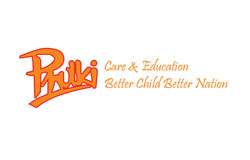Phulki
Company overview
Website:
www.phulkibd.org
Headquarters: Bangladesh
Countries of Operations: Bangladesh
Women owned /led: Founded by at least one woman, At least 51% owned by women, At least 30% women in senior leadership positions, At least 30% of women in board of directors
Year of founding: 1991
Number of FTEs
: >100 FTEs
Legal status of the organization
: Non-profit
For more information, download the full
business profile here

Company overview
Website: www.lavanderiapp.io
Headquarters: Mexico
Countries of Operations: Mexico


Legal status of the organization
: For-profit
Year of founding: 2018
Number of FTEs
: 5 to 20 FTEs
Women owned / led: Founder
Care economy activities and business model
About the organization:
Phulki is the pioneer in establishing early childhood development programs in Bangladesh. Phulki provides various training on health issues, woman rights, and vocational trainings such as caregiver training, supervision training and others, to increase women's financial stability. It has setup childcare facilities in the workplace for women that are employed in garment factories in Bangladesh. Phulki also works with domestic house helpers building their capacity.
Activities in the care economy:
Provision of affordable services that provide care & domestic work
Phulki is the pioneer in establishing early childhood development programs in Bangladesh. Phulki provides various training on health issues, woman rights, and vocational trainings such as caregiver training, supervision training and others, to increase women's financial stability. It has setup childcare facilities in the workplace for women that are employed in garment factories in Bangladesh. Phulki also works with domestic house helpers building their capacity.
Stage of growth: Established/Mature
Type of services: Infant-care (children younger than 1-year), Child-care (Ages 1 to 5), Child-care (Ages 6 and above), Domestic services, Labour saving solutions
Number of customers (2020): Over 100,000
Number of customers (2019): Over 100,000
Number of customers (2018): Over 100,000
Type of services: Infant-care (children younger than 1-year), Child-care (Ages 1 to 5), Child-care (Ages 6 and above), Domestic services, Labour saving solutions
Number of customers (2020): Over 100,000
Number of customers (2019): Over 100,000
Number of customers (2018): Over 100,000
Financials
Revenue USD (2020): Over 1 million
Revenue USD (2019): Over 1 million
Revenue USD (2018): Over 1 million
Pathways to impact
Challenge addressed:
Lack of affordable solutions to reduce amount of time spent on care and domestic work, Limited redistribution of care and domestic work to other actors in the care economy
Pathway to impact - 4 Rs: Reduce, Redistribute
Populations affected: Unpaid care workers, Paid care workers, Unpaid domestic workers, Paid domestic workers, Infants or children
Number of people served (2020): Over 100,000
Number of people served (2019): Over 100,000
Number of people served (2018): Over 100,000
